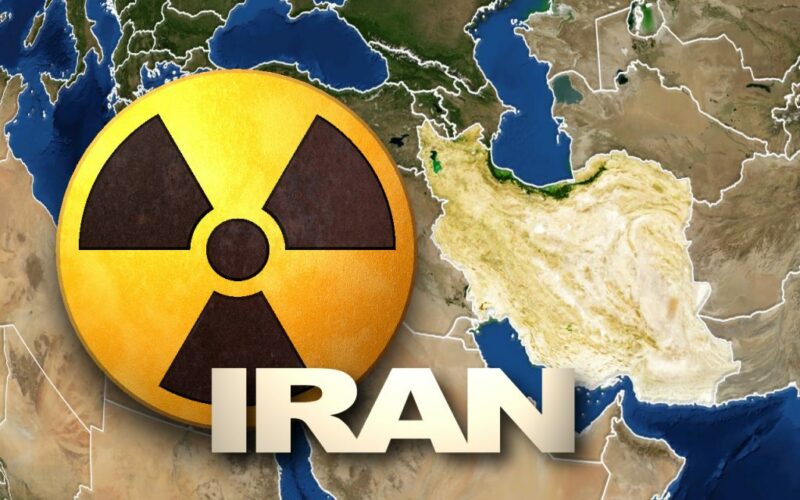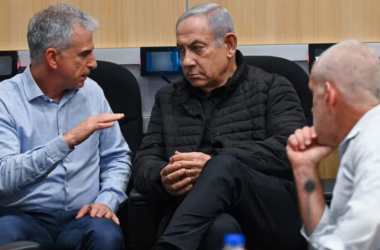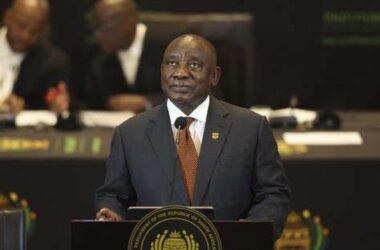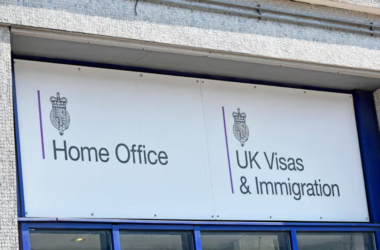The Biden administration is urging European allies to refrain from plans to criticize Iran for its advancements in its nuclear program, according to diplomats involved in the discussions. This effort aims to prevent escalating tensions with Tehran ahead of the U.S. presidential election in the fall.
The U.S. is advising against a proposal by Britain and France to censure Iran at the upcoming International Atomic Energy Agency (IAEA) board meeting in early June. Washington has also encouraged several other countries to abstain from voting on the censure, stating it will do the same.
U.S. officials deny that they are lobbying against a resolution. However, the situation highlights the growing concern among Western officials about Iran’s nuclear activities. According to IAEA data, Iran currently possesses enough highly enriched fissile material to create three nuclear weapons.
Some U.S. officials are wary of potential volatility in Iran as the country approaches elections for a new leader following President Ebrahim Raisi’s death in a helicopter crash earlier this month. The Biden administration has consistently advocated for a diplomatic solution to Iran’s nuclear program.
European diplomats caution that failing to act could undermine the IAEA’s authority and weaken Western credibility in pressuring Iran. They have expressed frustration with what they perceive as U.S. efforts to undermine their approach. A U.S. official, however, emphasized that Washington is “tightly coordinated” with its European partners ahead of the IAEA board meeting, adding that “any speculation about decisions is premature.”
The Biden administration points to its strategy of increasing pressure on Iran through sanctions and international isolation, as demonstrated by the Group of Seven’s response to an Iranian missile and drone attack on Israel last month. Another U.S. official described claims that Washington is avoiding confrontation with Iran before the U.S. elections as “totally false.”
The IAEA board last passed a resolution rebuking Iran in November 2022. U.S. and European officials in Vienna have repeatedly warned that they would take action if Tehran did not curb its nuclear advances and enhance cooperation with the agency.
At the core of the disagreement is the concern in some European countries, particularly France and Britain, that the Biden administration lacks a clear strategy for addressing Iran’s nuclear progress. European diplomats assert that the Biden administration appears unwilling to pursue either a serious diplomatic effort with Iran or punitive actions against Tehran’s nuclear violations.
The Biden administration initially prioritized reviving the 2015 nuclear deal, which lifted most international sanctions on Iran in exchange for stringent but temporary restrictions on its nuclear activities. However, talks collapsed in August 2022 when Iran hardened its demands, and since then, U.S. officials have aimed to contain tensions with Iran.
U.S. officials argue that Europe could increase pressure on Iran, including cutting off Iranian banks operating on the continent and designating Iran’s Islamic Revolutionary Guard Corps as a terrorist organization. They highlight coordinated sanctions efforts with Europe against Iran for its missile and drone transfers.
Washington has its own plan to pressure Iran, which includes requesting the IAEA to prepare a comprehensive report detailing Iran’s lack of cooperation. While such a report would not have immediate consequences, a similar effort in 2011 focused international attention on Tehran’s nuclear buildup, spurring international sanctions.
U.S. officials state that if Iran does not alter its course, such a report could build the case for reinstating international sanctions lifted under the nuclear deal. European officials have indicated that Washington might consider requesting such a report after the U.S. elections in November but has no immediate plans to do so.
European diplomats remain concerned that without decisive action, Iran’s nuclear program could further escalate. The IAEA has been trying to improve cooperation with Iran, but no concrete steps have been taken so far. The Biden administration is also skeptical that a formal rebuke will be effective, fearing that it may provoke further actions from Iran.
Recent indirect discussions between U.S. and Iranian officials in Oman have focused on regional and nuclear issues, highlighting ongoing efforts to manage tensions. Experts argue that while a censure resolution could document Iranian noncompliance, it should be part of a broader strategy to pressure and incentivize Iran to cooperate with the IAEA.
The upcoming IAEA board meeting will test the international community’s resolve in addressing Iran’s nuclear activities and the effectiveness of the U.S. administration’s approach to diplomacy and sanctions.








